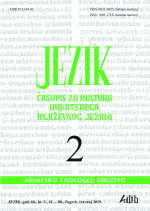
U spomen, Josip Silić
Ljubica Josić: U SPOMEN, JOSIP SILIĆ (4. siječnja 1934. − 28. veljače 2019.)
More...We kindly inform you that, as long as the subject affiliation of our 300.000+ articles is in progress, you might get unsufficient or no results on your third level or second level search. In this case, please broaden your search criteria.

Ljubica Josić: U SPOMEN, JOSIP SILIĆ (4. siječnja 1934. − 28. veljače 2019.)
More...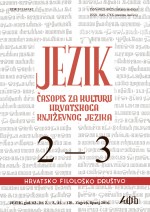
Review: Velimir Piškorec uz suradnju Sanje Janković ‒ Tomo Maretić na raskrižju filologije i jezične politike, Udruga zagrebačkih esperantista, Zagreb 2015. / Velimir Piškorec kunlabore kun Sanja Janković: Tomo Maretić en interkruciĝo filologio kaj lingva politiko, Unuiĝo de Zagrebaj Eesperantistoj, Zagreb 2015. Reviewed by Dubravka Sesar.
More...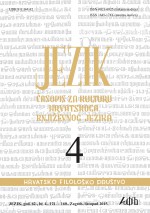
This article analyses the importance of mother tongue as a barrier against the omnipresent language unitarization at the global level that will in the future result in one language dominating general communication and in the disappearance and extinction of numerous small languages. One’s mother tongue must therefore be protected, cherished, enriched, developed, studied and legally protected. And most importantly, the mother tongue must be loved; people must think, write and read in their mother tongue. This is the only way to protect it and preserve it for generations to come.
More...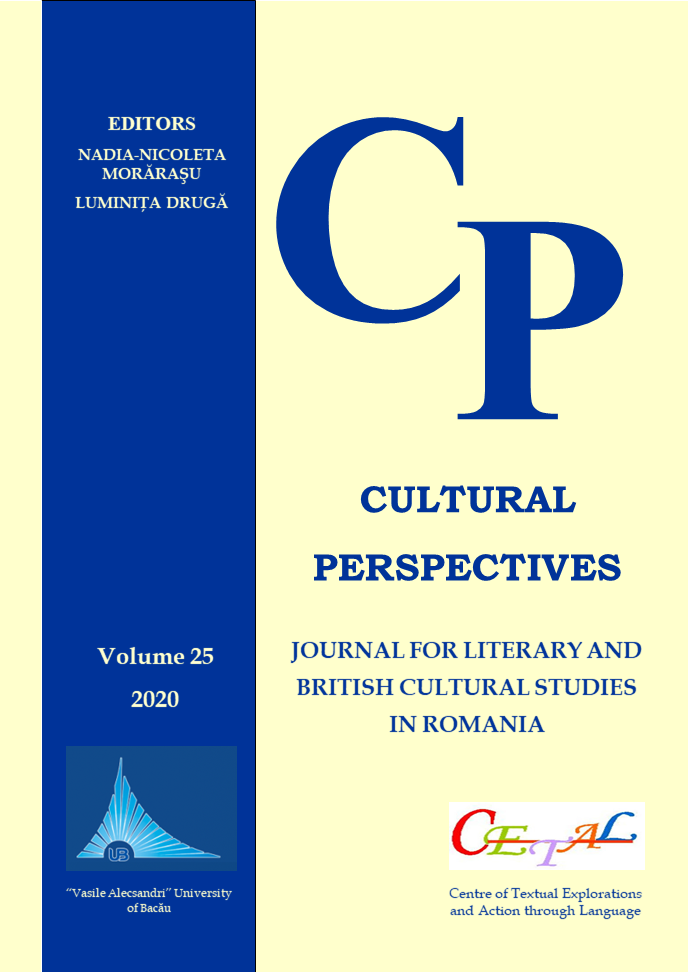
Generally, the expression “urban culture”, through a variety of elements that set up its profile (like, for example, history, personalities, language, art, architectural style, fun or music), becomes synonymous with the culture of the elite, the intellectuals or the people of culture. In Romania, this phenomenon of urban culture is new and still in progress, with a constant balancing between preserving the local elements and connecting to the values of modernity (Stan 2010). The aim of the present paper is to highlight the manner in which the urban culture of a Romanian provincial town, Bacău, is shaped through English, in its attempt to adapt to the European values.
More...

author Nadia Nicoleta-Morărașu
More...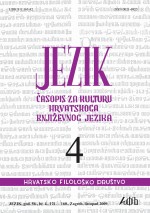
Odgovor na članak S. Babića iz Jezika, br. 5., 2008. Prvoga rujna 2008. godine međunarodno je priznat hrvatski jezik!
More...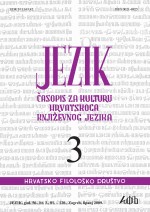
Poštovani gospodine predsjedniče, gospođe i gospodo, kolegice i kolege. Osvrnuo bih se ovdje na neke probleme koji su u vezi s našom temom, i to kao član ovoga saborskoga Odbora, a ne iz nekih drugih razloga.
More...
Danas smo pred vratima Europske Unije. Zabrinuti smo pomalo za svoj identitet, posebno za svoj jezik, kao njegovu bitnu sastavnicu, a koji smo mukotrpno izgrađivali i čuvali svim nepovoljnim vjetrovima usprkos.
More...
Prvo, što se tiče hrvatskoga književnoga jezika, on je normiran, on postoji, norma je njegova jasna i ono o čemu se mi sporimo, to ne iznosi ni 2% od hrvatskoga književnoga jezika.
More...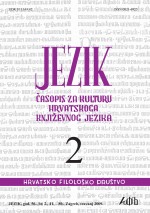
In this paper the relationship between the notions of „standard language“ (standardni jezik) and „literary“ or „written language“ is briefly discussed because it continues to induce misunderstandings in Croatian linguistic discourse. They are not synonyms because the standard language is a literary or written language, but not every literary language is a standard language. Standard language is the most highly developed form of a literary or written language. Therefore, standard and literary have to be distinguished and denoted by different terms.
More...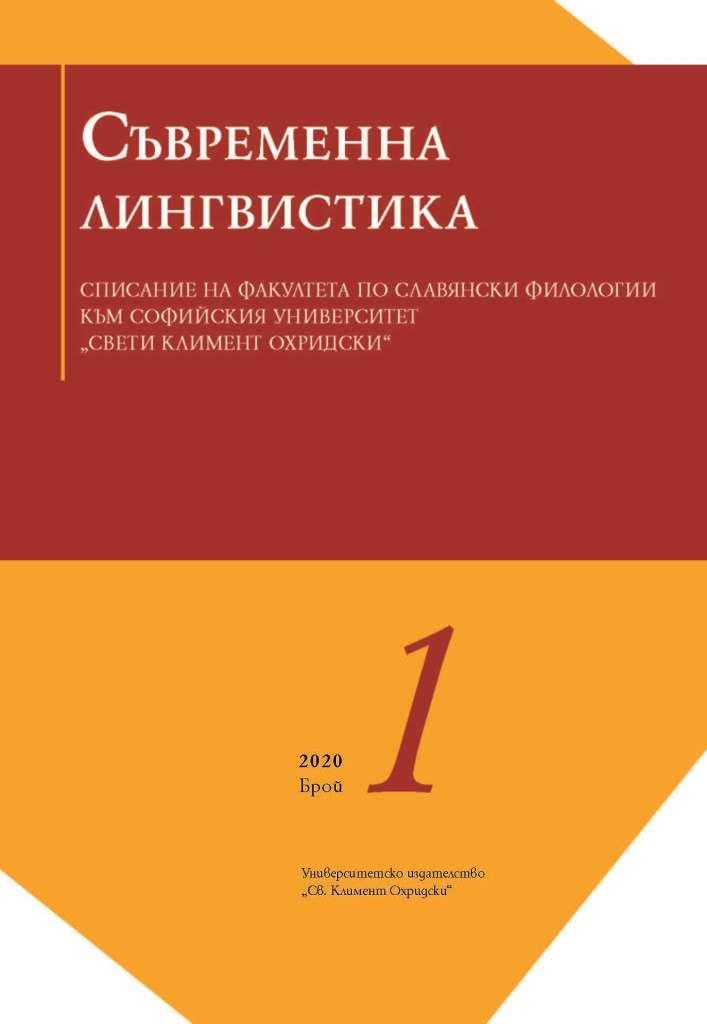
The article has for a subject the cognitive approach in linguistics in general and in syntax in particular. An overview is offered to the theses on specifics of application of the method of cognitive congruity in syntax as cognitive revision of definitive attributes of sentence and hence - of sentence paradigm. The variability of sentence paradigm is looked into from the point of view of cognitivism and the metalanguage is presented its referential part along with punctuation.
More...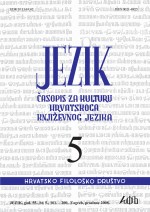
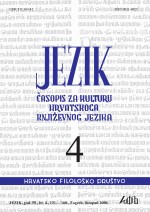
Scientific-Life: Mirela Barbaroša-Šikić ‒ XII state competition in the knowledge of the Croatian language
More...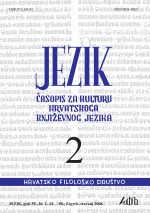
Review of the monograph: Stjepan Vukušić, Ivan Zoričić, Marija Grasselli-Vukušić, Naglasak u hrvatskome književnom jeziku, Nakladni zavod Globus, Zagreb, 2007. Reviewed by Blaženka Martinović.
More...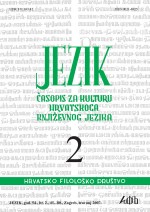
Book-Review: Mira Menac-Mihalić, Frazeologija novoštokavskih ikavskih govora u Hrvatskoj, Institut za hrvatski jezik i jezikoslovlje, ŠK, Zagreb, 2005., 505 str. Reviewed by Vesna Zečević.
More...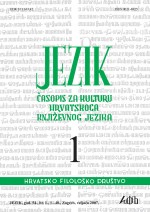
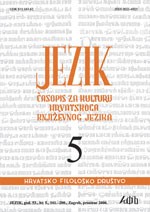
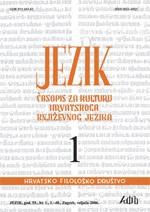
Book-Review: Milica Mihaljević: Kako se na hrvatskome kaže www, Hrvatska sveučilišna naklada, Zagreb, 2003. (Matea Birtić)
More...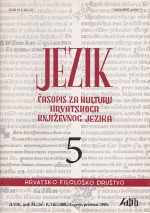
Book-Review: Stjepko Težak, Hrvatski naš (ne)podobni, Školska knjiga, Zagreb, 2004., 202 str. (Dunja Pavličević Franić)
More...